Cal Poly Pomona students, professors attend Iowa caucuses
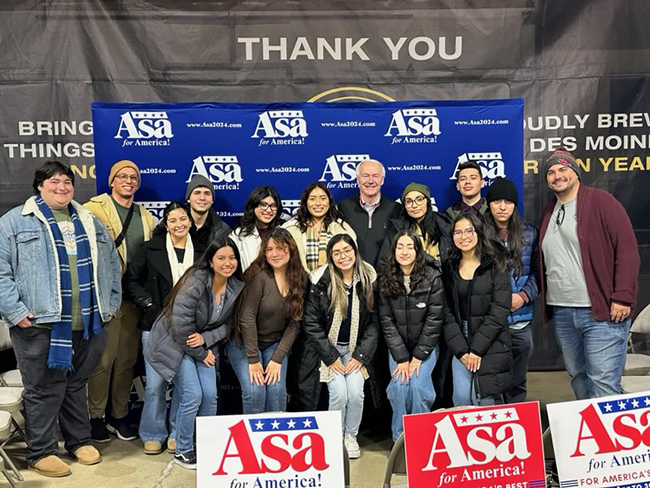
Cal Poly Pomona students and faculty pose with former Arkansas Governor Asa Hutchinson at last week’s Iowa caucuses. Pictured with Hutchinson are (back row, L-R) Christopher Torres, professor Mario Guerrero, Ashley Pineda, Brian Lazo Casanave, Kailey Gonzalez, Yeltzin Rodriguez Luna, Hutchinson, Lourdes Rosas, Zé Ferreyra, David Maqueda, and assistant professor Jarred Cuellar. In the front row are (L-R) Kenia Urbina Cruz, Alejandra Lopez, Darani Sanchez Cervera, Marissa Arredondo, and Stephanie Paredes. Photo/courtesy of Yeltzin Rodriguez Luna
by Mick Rhodes | editor@claremont-courier.com
Thirteen students and two professors from Cal Poly Pomona got an up close glimpse into Iowa’s quirky election system last week when they traveled there to observe and take part in the state’s Republican Party caucuses.
The January 2-9 trip was in conjunction with CPP Assistant Professor of Political Science Jarred Cuellar’s class, “Nominations: Iowa caucuses.”
Curiously, all 15 in the CPP delegation were Hispanic, and perhaps even more interestingly, all were Democrats, according to two of the students. That said, the idea was to leave all political allegiances at home, Cuellar said.
“The whole point was not to go in there really with any kind of ideological opposition or support, but really just to see the process as it plays out, and how unique it was,” said the 30-year-old assistant professor.
The Iowa caucuses, which former President Donald Trump won easily, were the Republican Party’s first state contest to determine its nominee for the November 5 presidential election. The Democrats will hold their first primary January 23 in New Hampshire.
With a population of just 3.2 million, the Hawkeye State is uniquely suited for the caucus system, in which voters can sometimes mingle with major candidates over the days leading up to the caucus meetings, where votes are tallied. Some 110,000 of the Iowa’s 752,000 Republicans participated in the 2024 Iowa caucuses. By contrast, 2.5 million Republicans voted in California’s 2020 GOP primary election.
“Here in California we don’t get those retail politics,” Cuellar said. “We don’t really get the chance to meet candidates. It’s a lot more media and a big picture game, where in Iowa there’s people you’ll meet that have met every president for the past 20 or 30 years. It’s just a lot more up close and personal politics.”
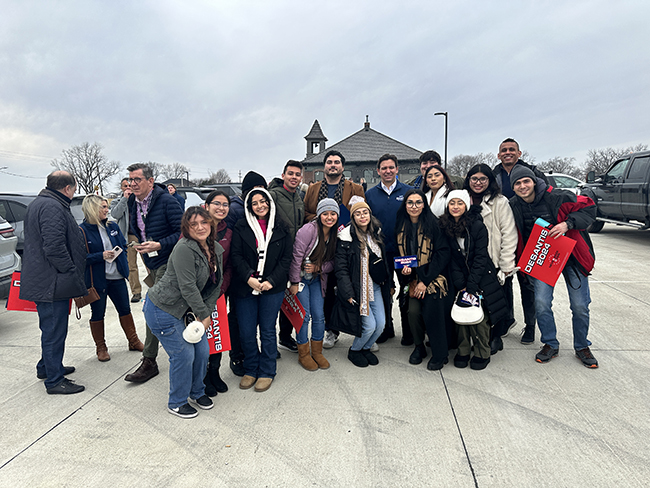
Cal Poly Pomona students and faculty pose with Florida Governor Ron DeSantis last week at the Iowa caucuses. Pictured with the presidential hopeful (back row, L-R) are David Maqueda, Zé Ferreyra, assistant professor Jarred Cuellar, DeSantis, Christopher Torres, Yeltzin Rodriguez Luna, Kailey Gonzalez, professor Mario Guerrero, and Brian Lazo Casanave. Front row (L-R): Alejandra Lopez, Stephanie Paredes, Ashley Pineda, Kenia Urbina Cruz, Darani Sanchez Cervera, Lourdes Rosas, and Marissa Arredondo. Photo/courtesy of Yeltzin Rodriguez Luna
That certainly held true for both Darani Sanchez Cervera, a 21-year-old junior political science major from San Rafael, and West Covina senior Yeltzin Rodriguez Luna, 22, also a poli sci major, who both plan on attending law school after graduating from CPP. Part of their assignment on the trip was to do some sort of campaign work. They fulfilled this requirement January 7 by canvassing door-to-door alongside former Arkansas Governor Asa Hutchinson (who suspended his campaign Tuesday after garnering just 191 votes in Iowa).
“As I was talking to the governor, he said that ‘Without rejection, you can’t start anywhere,’” Sanchez Cervera said. “And that really stood out to me, because as a group full of Democrats, he wasn’t scared to speak to us and allowed us to volunteer in his campaign.”
The group also attended a six-hour Trump rally on January 6, a date not lost on them as the third anniversary of the storming of the U.S. Capitol.
“It was a little nerve-wracking at first,” Cuellar said. “We were a group of all Latino students and professors, and a lot of the rhetoric around Trump can come across as rather anti-Latino. So there was a lot of nerves there, I think.”
“Everybody was like a little on edge, a little scared,” Sanchez Cervera echoed. “But overall, the people were really nice to us.”
The rally, with prayers and gospel-flavored music, took on a quasi-church service feel.
“And it was kind of crazy because people were crying for Trump,” Sanchez Cervera said. “They had their hands up, praising for him like if he was God. And I was like, ‘Wow, this is really crazy that people have so much faith into one person.’”
Sanchez Cervera and Rodriguez Luna also attended a rally in a modest coffee shop for the eventual runner-up in Iowa, Florida Governor Ron DeSantis. Rodriguez Luna reacted strongly to DeSantis telling constituents at the rally that if elected he would work to strip birthright citizenship from children of immigrants.
“Which I think is crazy seeing that’s literally an amendment,” she said, referencing the 14th Amendment to the U.S. Constitution. “It was shocking to see how he pushed that so hard while at the same time pushing to protect the Constitution and protect the Amendments and stand by it. So, it was really interesting to see the hypocrisy of it all.”
Rodriguez Luna wasn’t surprised by the fiery rhetoric at both rallies.
“I honestly expected everything I witnessed: blatant racism, sexism, homophobia,” she said. “I personally felt a little bit more attacked and threatened overall by their remarks, especially since I’m a DACA recipient,” she added, referencing the federal Deferred Action for Childhood Arrivals program that protects eligible immigrants who came to the U.S. when they were children from deportation.
As a DACA recipient, Rodriguez Luna is protected from deportation as long as she is “an upstanding citizen,” she said, and must renew her worker authorization form every two years. She works, pays taxes, but is ineligible for federal benefits such as Social Security, college financial aid, or nutritional assistance programs.
She’s also not eligible to vote, “which I know a lot of people find interesting, seeing that I’m a political science student,” she added.
Traveling to Iowa, with its 88% white population, was eye opening for Cuellar’s all-Hispanic student delegation.
There were “a little bit more stares and a little bit more awkwardness at times, but the students handled it very well and overall I think it went very well,” Cuellar said. “We didn’t have really any big problems with it. But it was definitely jarring for the students, who grew up for the most part in the greater LA area that is 45 percent and upwards Latino.”
Part of the impetus to go to Iowa was to demonstrate how politics are made outside of California.
“That was a big part too that I wanted them to take away,” Cuellar said. “With the Democrats no longer using Iowa as first, a lot of the conversation once they there was why that is the case. And I think very quickly it hit that Iowa does not necessarily line up with the United States demographic wise, be that racial, education, a lot of different things. And so I think the students got to see that firsthand.”
Cuellar was most gratified with how his students comported themselves on the road trip, despite a sometimes chilly reception from caucus-goers.
“I am just blown away by them,” he said. “I don’t know a group of students that could walk into a state where the wasn’t a lot of familiar faces — just the opposite of what they’re used to — and go look several presidential candidates in the eyes and ask them hard-hitting questions about DACA, about immigration, about gun violence. I cannot be more proud as their professor to sit there and witness that. They’re a very special group of students and I’m just very proud.”



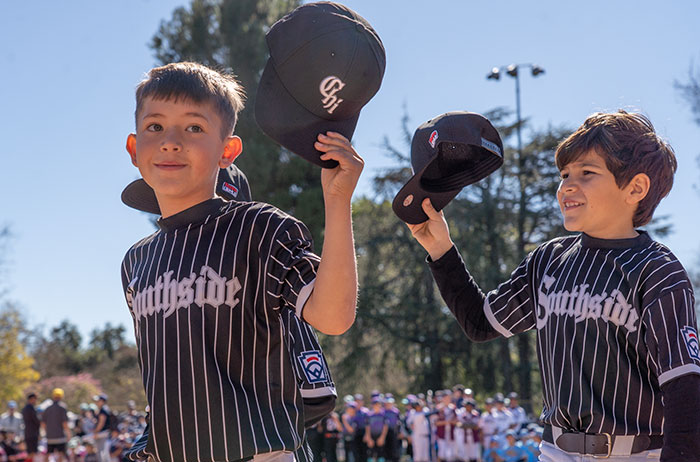
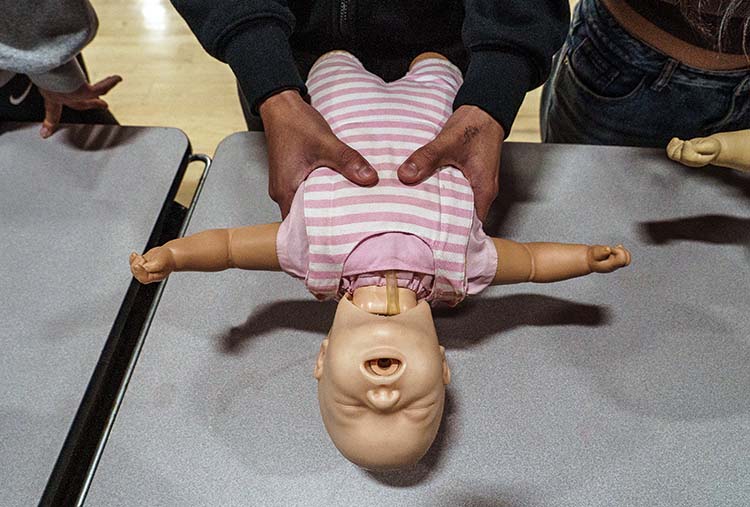
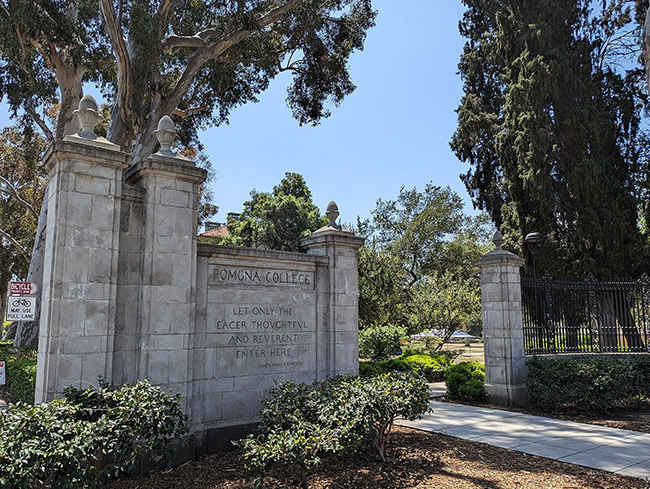

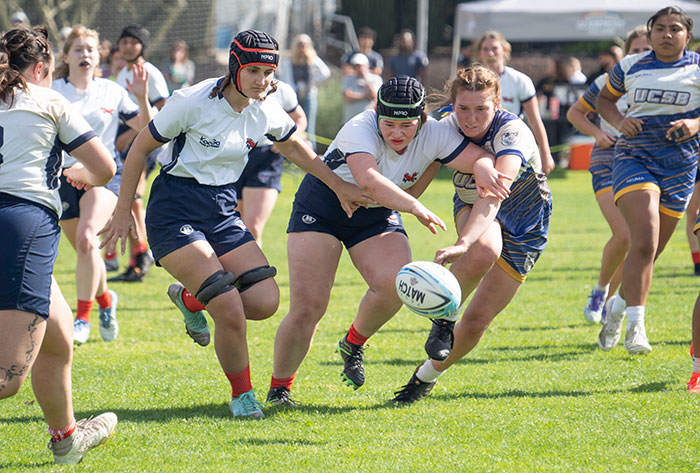


0 Comments